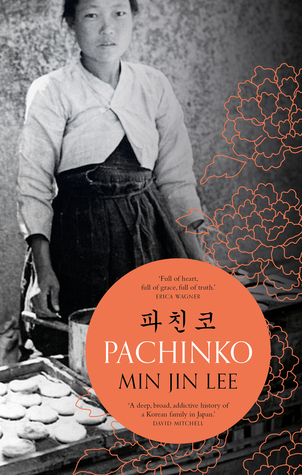Pachinko
by Min Jin Lee
Beginning in the early 1900s, Pachinko tells the story of four generations of a Korean family as they struggle to make their home in an often hostile Japan. The early years describe the harsh economic realities faced by the family in Korea. Later, when pregnant daughter Sunja makes a marriage of convenience, she follows her missionary husband to Japan where social and political injustice are piled upon economic hardship. Told with gentle restraint, the novel details the difficulties faced by each generation and the different ways in which the characters deal with them. Along the way we are swept up in the recent history of Japan, told through the eyes of characters who can never quite belong. Essentially this is a story about home.
One of the things I enjoyed most about the novel, is that although it had a 21st-century sensibility, it was almost 19th-century in its use of an omniscient narrator. Not many writers are brave enough (or skilled enough) to flirt with so many characters’ points-of-view. And although Lee did flirt up a storm, I always felt in safe hands as a reader.

